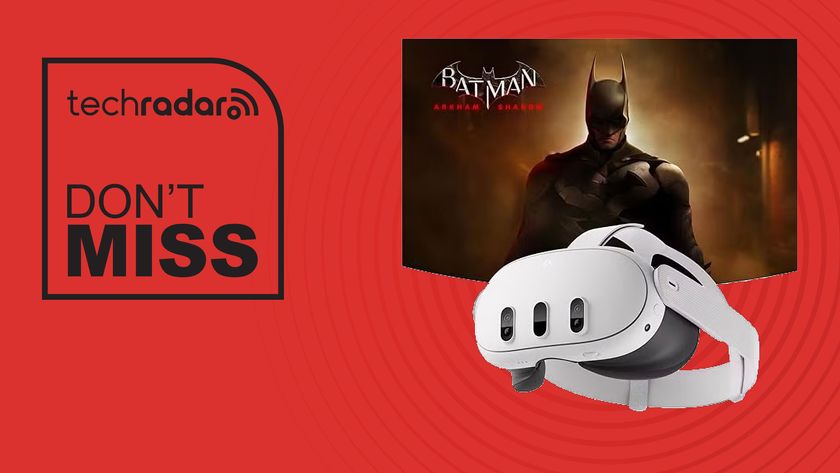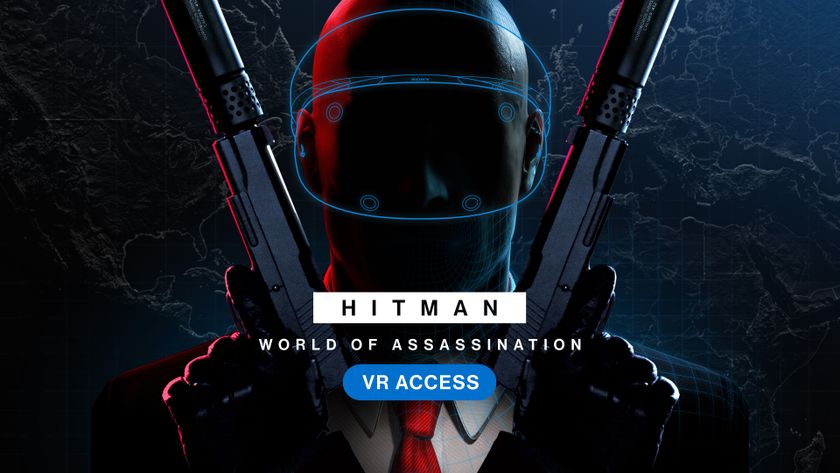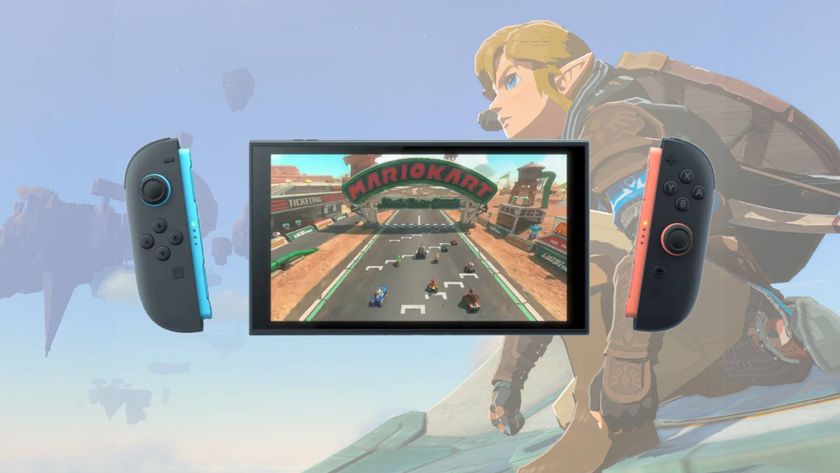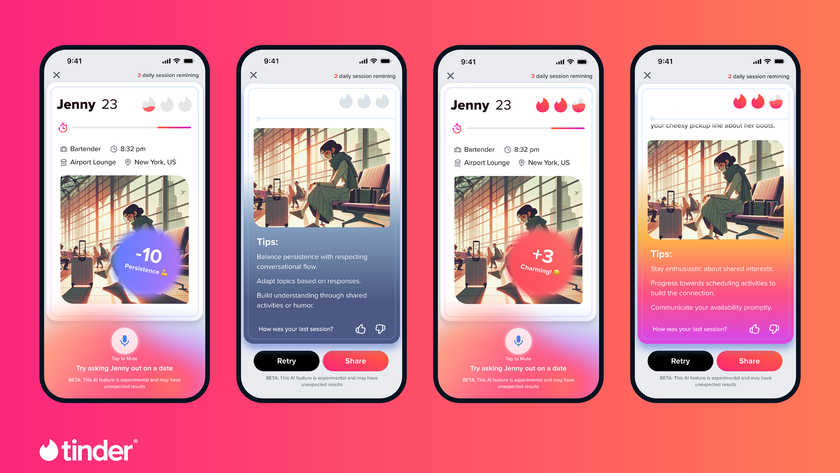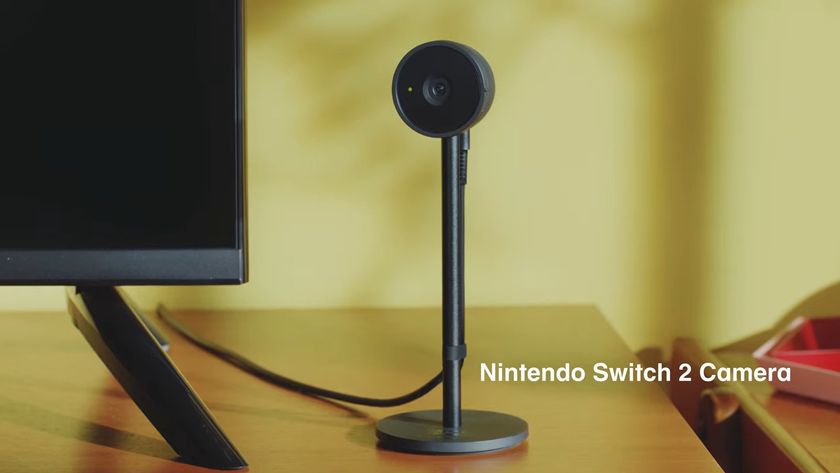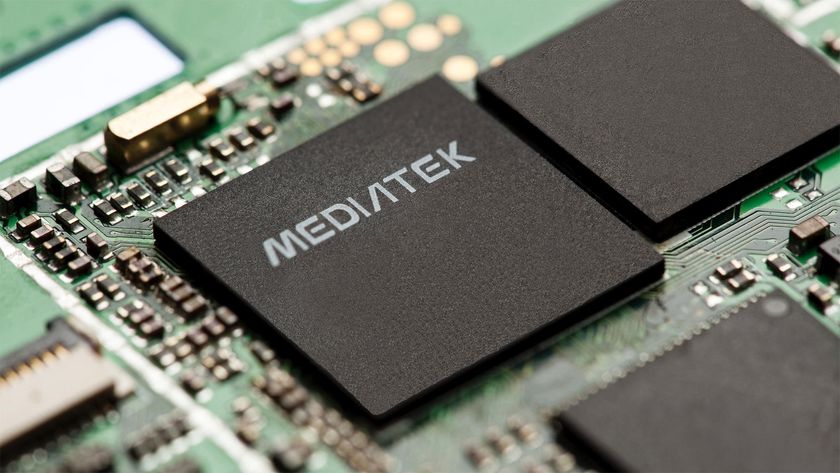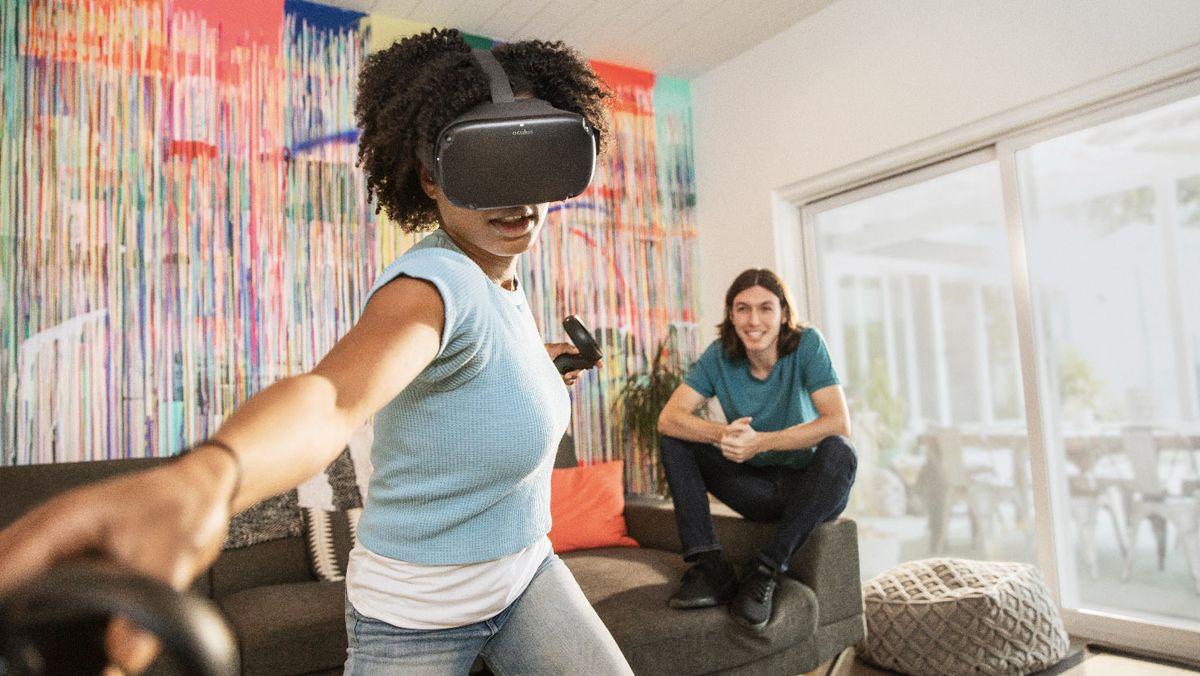
Oculus VR has announced new "passthrough API technology" which allows Oculus Quest 2 headsets to display an augmented reality image over a VR space.
Currently, it’s only available for developers to test in the latest SDK build, but Oculus VR stated in its blog post that it wants to have the technology ready for developers to patch into their software made for Quest 2 devices later this year.
Oculus highlighted three areas where it wants passthrough API technology to apply, those being social, productivity and gaming. Examples include communicating with colleagues through virtual monitors, displaying virtual content for social gatherings or engaging in gaming activities like – and we quote – “zombies hiding in your living room.”
- Oculus Quest Pro will arrive long before any Oculus Quest 3 VR headset
- PSVR 2, Oculus Quest 3, and Apple VR headsets predicted to launch in 2022
- Best VR headsets: Oculus Quest 2, PSVR, Valve Index and more
Other ambitious activities Oculus wants to make available with passthrough tech include drawing 3D images with your finger, applying styles and tints to change the lighting and color scheme of your real surroundings and rendering passthrough images into your environment.
But how does it work, you ask? Well, your Oculus Quest 2 headset can display your immediate surroundings via its cameras. Then, passthrough technology can ‘overlay’ virtual images onto the camera feed, giving the illusion that they’re being projected into real space. Said virtual images could be a monitor displaying a video, a 3D model to interact with or even virtual targets designed to shoot at, for example.
Analysis: what does this mean for VR?
Augmented reality tech has certainly come across as quite gimmicky in the past, being a particularly throwaway feature on the Nintendo 3DS, for example. But the tech already has been used practically for years, with most of us, for instance, having used our cameras to scan QR codes, or to “catch” creatures in Pokémon Go on smartphones.
While a passthrough API seems like purely experimental tech on the surface, there could actually be a wide range of practical applications for the technology should developers choose to embrace it. We can’t imagine the gaming applications for passthrough will be anything more than a novel distraction (as much as we’d love to be disproven) but the productivity and social factors have us more intrigued.
Get daily insight, inspiration and deals in your inbox
Sign up for breaking news, reviews, opinion, top tech deals, and more.
Using passthrough for educational purposes could offer something that traditional lessons can’t. As an example, passthrough tech could be used to display landscapes or cities, accompanied by contextual information to make learning more interactive and fun.
For a social application, we think it would be seriously cool to have a bunch of friends gather with their Quest 2 headsets, and all be able to watch a movie or show on a virtual projector displayed by passthrough.
It seems to veer into the territory of AR devices like the Magic Leap One, which launched to a wave of hype in 2018 and then was quickly relegated to the scrap heap in the face of developer disinterest and an inaccessible price barrier for consumers. If the Quest 2 can pull this AR integration off, through it could fill the gap left by its flashy predecessor.
It’s ambitious tech, to be sure, with at least a passing sense of novelty around it. But as Oculus highlights, genuinely useful applications for passthrough do exist and we hope that developers will embrace and improve on the technology when they’re able to add it into their apps later this year.

Rhys is TRG's Hardware Editor, and has been part of the TechRadar team for more than two years. Particularly passionate about high-quality third-party controllers and headsets, as well as the latest and greatest in fight sticks and VR, Rhys strives to provide easy-to-read, informative coverage on gaming hardware of all kinds. As for the games themselves, Rhys is especially keen on fighting and racing games, as well as soulslikes and RPGs.
